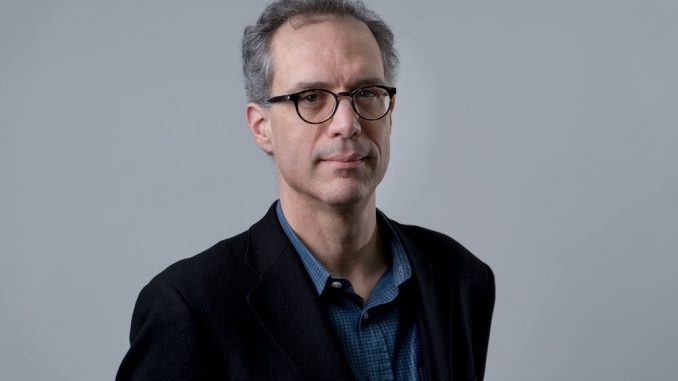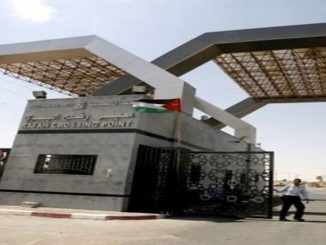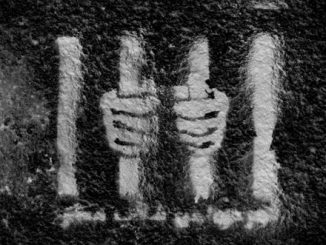
David D. Kirkpatrick was Cairo bureau chief for The New York Times between 2011 and 2015, and is the author of a recent book on the country.
Egyptian officials detained a New York Times correspondent after he arrived in Cairo on Monday, holding him incommunicado for hours before forcing him onto a flight back to London without explanation.
The move against the correspondent, David D. Kirkpatrick, is an escalation of a severe crackdown against the news media under Egypt’s strongman leader, General Abdel Fattah el-Sisi.
Egyptian journalists have borne the brunt of Mr. el-Sisi’s repression, with dozens imprisoned or forced into exile. But of late, a lack of pushback from the United States has emboldened Egypt’s security forces to take stronger action against representatives of Western news outlets, including expulsion.
Mr. Kirkpatrick, 48, was Cairo bureau chief for The New York Times from 2011 to 2015 and is the author of a recent book on Egypt, “Into the Hands of the Soldiers.” He was detained on arrival at Cairo airport on Monday night by security officials.
Hours later, after being officially denied entry to the country, Mr. Kirkpatrick’s phone was confiscated and he was held without food or water for seven hours.
On Tuesday morning, Egyptian officials escorted him onto an EgyptAir flight back to London. An air marshal held his passport until the plane touched down at Heathrow Airport.
The Egyptian authorities gave no explanation for their actions. Sam Werberg, a spokesman for the United States Embassy in Cairo, said: “We’re concerned about reports of the unexplained refusal of entry to Egypt of a U.S. citizen New York Times journalist. We have raised our concerns with Egyptian officials.”
Michael Slackman, international editor of The New York Times, said: “We are deeply disturbed that the government of Egypt detained our correspondent, kept him incommunicado, denied him food or water and refused to allow him into the country.”
“Egypt has long been a center of the international press in the Middle East, a role that is now severely threatened,” Mr. Slackman added. “A free and open press is more essential than ever.”
Egypt has imprisoned dozens of journalists in recent years, often for nothing more than asking the wrong questions. In January, a television anchor was sentenced to a year in prison for interviewing a gay man on his show.
A photojournalist, Mahmoud Abou Zeid, known as Shawkan, is the most prominent imprisoned journalist. He was due to be released in September after five years in prison but remains in detention for reasons that are unclear. His lawyer says he may be freed this week.
Mahmoud Abou Zeid, a photojournalist known as Shawkan, was jailed in 2013. He was due to be released in September but remains in detention for reasons that are unclear.
In March 2018, Egyptian officials drove a reporter with The Times of London, Bel Trew, to Cairo airport and forced her to board a flight to London. Weeks later, Mr. el-Sisi won a flawed presidential poll with 97 percent of valid votes.
Ahmed Gamal Ziada, an Egyptian journalist arrested at Cairo airport on Jan. 30, faces charges of spreading false news on social media.
Mr. Kirkpatrick’s writings have clearly irked the authorities. His recent book covered the Arab Spring uprising of 2011 and the violent turmoil surrounding the 2013 military takeover that brought Mr. el-Sisi to power. In an article last year, he described efforts by Egyptian intelligence officers to direct Egyptian news media coverage on sensitive subjects like relations with Israel.
The Egyptian authorities routinely denounce human rights groups, independent journalists and other critics as agents of foreign powers or purveyors of fake news. Their language often echoes that coming from Washington.
Defenders of press freedom worry that President Trump’s outbursts — such as a Twitter post last weekend that read “THE RIGGED AND CORRUPT MEDIA IS THE ENEMY OF THE PEOPLE!” — embolden autocrats around the globe to take aggressive action against the news media.
Despite growing human rights abuses in Egypt, Mr. Trump counts Mr. el-Sisi among his closest allies in the Middle East and has described him as a “great guy.” During a speech in Cairo in January, Secretary of State Mike Pompeo offered further praise for Mr. el-Sisi.
Egypt, China and Turkey are the world’s worst jailers of journalists, responsible for about half of the global total of at least 251 who were imprisoned for their work in 2018, according to the New York-based Committee to Protect Journalists. Turkey was the worst jailer of journalists in 2018. But Egypt imprisoned the highest number on charges of false news, at 19.



